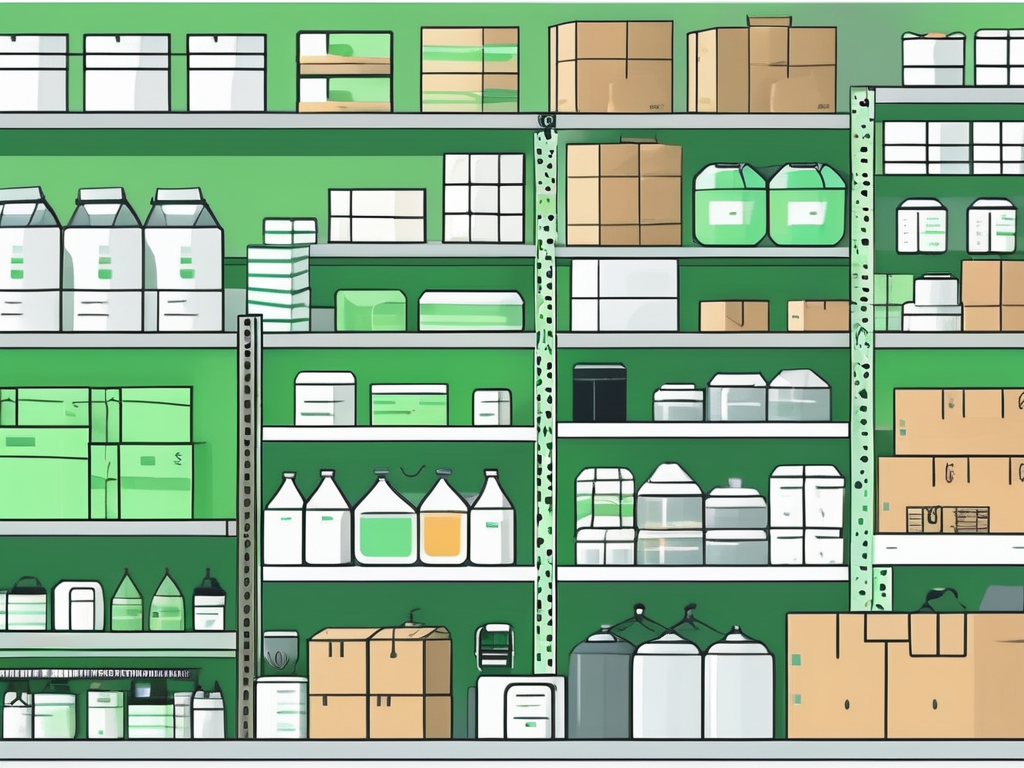Effective Strategies for Managing Slow Moving Inventory
by Shipfusion Team on Feb. 3, 2025
Managing slow-moving inventory is a challenge that many businesses face, particularly in retail and manufacturing. Items that do not sell quickly can tie up capital, clutter storage space, and incur additional holding costs. Understanding and effectively managing these inventory items …
Lowering Carrying Costs Associated with Investments In Inventory
by Shipfusion Team on Jan. 17, 2025
For ecommerce businesses, carrying costs represent a hidden yet significant factor that can quietly erode profitability. These expenses—spanning storage, insurance, and depreciation—demand a clear understanding to ensure your operations remain lean and profitable. By unpacking the com …
Product UPC Barcode: What It Is and Why It Matters In Ecommerce
by Shipfusion Team on Jan. 14, 2025
Product UPC barcodes play a vital role in the retail industry, serving as an essential tool for tracking inventory, speeding up transactions, and providing detailed product information. This guide will explore the fundamentals behind UPC barcodes, their creation process, how they are …
Understanding What Merchandise Inventory Includes
by Shipfusion Team on Jan. 10, 2025
For retail and wholesale businesses, merchandise inventory is more than just a collection of products—it's the engine driving revenue and customer satisfaction. Mismanagement can lead to overstocks, shortages, or missed opportunities, while effective strategies unlock growth and profi …
SKU vs UPC: Breaking Down the Differences
by Shipfusion Team on Jan. 9, 2025
The complexities of inventory and product management start with understanding two key tools: SKUs and UPCs. Though they might seem interchangeable, their unique roles are essential for streamlining operations, optimizing inventory, and enhancing the customer experience. This guide bre …
How to Calculate Inventory When You Haven't Counted
by Shipfusion Team on Jan. 3, 2025
Accurate ecommerce inventory management is essential for any ecommerce business, but what happens when a physical count isn’t feasible? How do you calculate inventory when you haven't counted? Whether due to time constraints, incomplete records, or operational challenges, businesses o …
What Is LIFO Reserve In Ecommerce Inventory Management?
by Shipfusion Team on Dec. 19, 2024
Inventory accounting methods play a critical role in how businesses represent their financial health, particularly for those managing significant stock levels. For ecommerce businesses or companies operating in inventory-heavy industries, the LIFO (Last In, First Out) reserve plays an …
Inventory Insurance: Why It Matters for Your Business
by Tim DiPietro on Nov. 29, 2024
Inventory doesn’t just sit on shelves—it powers growth, fuels customer satisfaction, and keeps operations moving. Whether you’re fulfilling customer orders or stocking up for a busy season, those goods represent both your revenue and your reputation. But have you thought about what wo …
Making Inventory Audits for Cosmetics Simple
by Shipfusion Team on Nov. 13, 2024
For cosmetics brands, inventory audits go beyond simple stocktaking; they’re a fundamental part of maintaining quality, customer satisfaction, and compliance. Cosmetics often have short shelf lives and face strict regulatory standards, making it essential for brands to monitor their i …
How to Calculate Inventory Carrying Cost In Ecommerce
by Shipfusion Team on Oct. 25, 2024
Inventory carrying cost is a balancing act that directly impacts your ecommerce business’s cash flow and profitability. It requires a deep understanding of various factors – ranging from storage fees to depreciation – not to mention a mathematical mind. This article explores what make …









